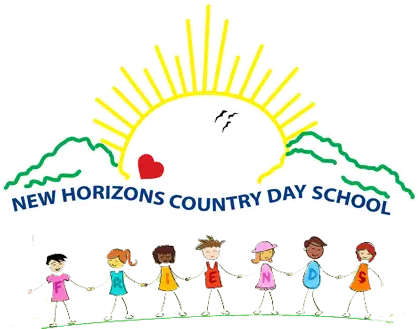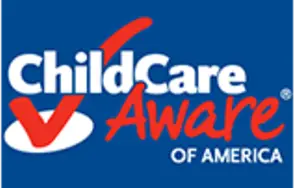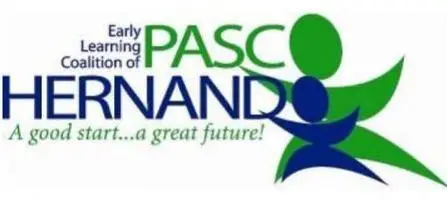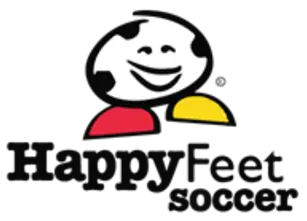Elementary

The Thinking Curriculum
The “Thinking Curriculum” is an important focus of New Horizons Country Day School’s Elementary Grades instruction. This is an area of curriculum which encompasses not only critical thinking as well. The National Council of Teachers of English, The Carnegie Foundation for the Advancement of Teaching and the National Council for Teachers of Mathematics are recommending that schools direct their educational focus toward the area of thinking skills. Raymond T. Schuler, President of the New York State Business Council illustrates this trend:
Business will always prefer people who have broad-based skills — people who can think critically, who can adapt well to new situations, and who can teach themselves. A person who is taught today’s skills may have obsolete skills by the time he or she reaches the work force. But a person who is taught to think well will always be able to adapt.
New Horizons believes in going beyond the “basics” by providing ample opportunities for children to utilize their abilities to come up with creative solutions to problems. The emphasis is placed on the notion that there may be many solutions or answers to a problem and not one “right answer”. The use of critical thinking comes into play when analyzing the possibilities and deciding which solution would work best and why.
Creative ideas are original, imaginative, and uncommon. For creative thinking to occur there must be a situation which encourages curiosity or a need to reason to wonder or ask questions. We encourage children to become risk takers in order to accumulate as many ideas as possible.
Critical thinking evaluates ideas developed by creative thinking. We believe that critical thinking skills can be taught to all students. We use critical thinking to systematically analyze and solve problems or issues.
New Horizons implements a holistic approach to the teaching of thinking which includes both critical and creative thinking and incorporates these five stages:
- Exploration
- Expression
- Investigation
- Idea Production
- Evaluation / Refinement
Curriculum Overview
New Horizons has a language rich and varied curriculum in our Kindergarten and Elementary grades. This overview provides a glimpse of the program at each grade level. It includes our goals as well as highlights of the skills taught. Although it reflects our plans for the school year, teachers may modify this plan to meet the needs of their students. Our curriculum and this guide will be reviewed annually.
Social Development – An atmosphere that fosters cooperative learning by working together to solve problems in social situations, to encourage independence and a strong sense of self, and to develop communication skills necessary to successfully function in society.
Language Arts – A literature-based comprehensive and interdisciplinary program that integrates the components of reading, listening, speaking, and purposeful, creative expression through process writing. The primary goal is to encourage a love of reading and writing to become life-long learners.
Mathematics – A curriculum which surrounds the children with meaningful concrete experiences to build a true understanding of mathematical patterns, language and symbols needed to perform number operations. Children gradually progress from concrete to more abstract understandings of mathematical concepts with an emphasis on problem solving and real life mathematical operations.
Writing – An engaging writing curriculum extends schoolwide, encouraging “risk taking”, creativity and expression at all levels. Writing is kept meaningful and with purpose. The primary goal is to encourage a love of writing and comfort with the writing process so students become life long writers.
Social Studies – A program designed to aid in the development of social concepts; to help the child understand himself as an individual and also as a part of a group; to promote understanding of others; to develop an awareness and understanding of people and communities in other parts of the country and the world; to foster an awareness of their world through a historical perspective.
Science – A sound introduction to the scientific method of discovery; to help the student better understand his environment and to extend the skills of injury, prediction, classification, observation and measurement.
Physical Education – A non-competitive environment that develops basic motor skills which foster such benefits as alertness, self-control, coordination, self-confidence and cooperation.
Fine Arts – A broad perspective providing exposure to historical as well as contemporary “Great Works” of Art, Music, and Drama.
Creative Activities – Creative expression through a variety of media encourages by providing many opportunities for students to explore the arts.
Health –Proper hygiene and good health is the focus of the health curriculum.
Computer Literacy – An induction to computer assisted learning and computer literacy programs with an emphasis on basic word processing through process writing.
Foreign Language (Spanish/French) –Through creative avenues, a foreign language will be introduced. Language and cultural awareness will be fostered adding diversity to the curriculum.
The program consistently strives to meet the developmentally appropriate standards published by the NAEYC (National Association for the Education of Young Children), the IRA (International Reading Association), and the NCTM (National Council for the Teaching of Mathematics).
Partners In Education
Your Involvement
We believe involving parents in the education process and its activities is important for both you and your child. When parents are involved in their child’s school, it strengthens the continuity between a child’s experiences at home and school.
Open Door Policy
You are welcome to visit New Horizons Country Day School anytime. We look forward to your visits. We ask that upon arrival to our school you visit the office and sign-in prior to going to the classroom so that in case of an emergency situation, we are aware of who is in the building.
Parent Volunteers
A parent’s participation in the classroom can be a valuable source of support for the education of our children. Your child’s classroom teacher will coordinate parent volunteer time and activities. Please notify your child’s teacher if you are interested in volunteering in the class.
Parent Concerns
If you have concerns, feel free to address them to either the teacher, director or administrator. Concerns are best handled immediately…please do not allow concerns or questions to go unaddressed. New Horizons’ staff and administration welcome the opportunity to openly communicate with you and your family.
Field Trip Policies
Overall curriculum is enhanced through Field Trips which extend classroom lessons. They provide opportunities for our children to explore their environment, to develop community awareness and to practice the responsible behaviors that are expected during group participation. Field trips will not be assessed separately but are included in the annual tuition.
Library
Weekly trips to the Palm Harbor Library are an important part of our reading program. These trips give each child the opportunity to discover the wonderful world of books while introducing skills that will later enable them to research topics of interest.
Sharing Time
We believe that the opportunity for sharing is an important part of a child’s oral language development. In the Kindergarten and Elementary grades, sharing time should involve a higher level of cognitive value.
Sharing activities have been specifically structured so that each child will have the opportunity to develop oral language skills while completing an activity that enhances their individual creative expression and personal ownership. Sharing activities may include Writer’s Briefcase, The Artist’s Case. The Mystery Box and other opportunities deemed appropriate by the teacher.
Homework
Homework is assigned for many purposes: to see if a child can work independently, to check a child’s mastery of subject matter, to develop independent study habits, to develop responsibility, etc. Homework will be assigned at the discretion of the teacher at each grade level and according to the needs of the individual student and the class.
We advocate parent parent interest in homework as well as restraint from giving “too much help.” Encouragement and praise will foster our goal of the student’s own satisfaction in feeling “I did it myself.”
Evaluation and Reporting
Our Commitment to Communicate
We believe it is our responsibility to communicate with you regarding your child’s experiences at New Horizons. In an effort to communicate with all our families, New Horizons embraces many forms of communication to keep you abreast of your child’s individual needs whenever possible. There are a variety of ways in which we will communicate with you which will include daily communications, weekly homework folders, monthly newsletters, calendars, and parent/teacher conferences.
Daily Communication
Please feel free to speak briefly with your child’s teacher when needed. The teacher’s primary responsibility during the day is the care and education of children, which often makes detailed discussions difficult during drop-off and pick-up times. Please do not hesitate to drop in before or after school or pick up the phone to discuss a concern.
Monthly Newsletters
Our monthly newsletters and calendars contain general information about upcoming school activities and events as well as informative columns. In addition to the school newsletter, you will receive a monthly calendar from your child’s teacher which will include more specific classroom information and the field trips scheduled.
Parent/Teacher Conferences
We feel that parent/teacher communication is a vital component of your child’s success. There are two conference days scheduled into our annual school calendar so that meeting with parents can occur, however, feel free to schedule a conference with your child’s teacher at any time during the course of the year.
Weekly Homework and Communication Folders
Weekly folders go home with your child sometime during the week depending on your child’s grade level. Within these folders teachers will often comment or communicate on your child’s growth socially, emotionally, and academically. We encourage parents to communicate by responding with comments, concerns and/or requests.
Progress Report
Elementary grade reporting is divided into 4 quarters of approximately 45 days. A report card will be sent home at the end of each reporting period with the exception of Kindergarten (which does not begin formal written evaluations until January).
Parent/Teacher conferences will be scheduled after the first reporting period and the third reporting period. Conferences may be requested at any additional time throughout the year according to the needs of the parent, child and teacher.
Discipline
Each child must be aware of and responsible for his own behavior and how it affects others. New Horizons’ policy is to work with students to encourage the development of self-esteem, self-control and self-discipline. We are guided by the following:
New Horizons Country Day School strives to encourage all forms of acceptable behaviour by establishing an appropriate classroom environment and curriculum. We embrace a philosophy of positive reinforcement, re-direction to appropriate behavior, addressing actions rather than students personally and giving students a clear understanding of the consequences of unacceptable behavior.
Assessments
Our student assessments are built around multiple indicators in order to develop an authentic evaluation of each child. In order to have a thorough understanding of a child’s development and progress, we feel it is important to view assessment as a form of gathering as much information as possible. Our student assessments include anecdotal records, observations of student behaviour, checklists, performance samples (portfolios) and one dimensional test-like procedures. Second, Third, Fourth and Fifth grade students will take part in a more formal assessment such as the Florida Writes and CTBS (Comprehension Test of Basic Skills).
Admission Policies
Applicants who are appropriate in age and development will be accepted on the basis of the following priorities:
- First Priority: Students who are presently enrolled in New Horizons Preschool and/or Elementary school.
- Second Priority: Students not presently enrolled in New Horizons Preschool/Elementary school but who have a sibling attending New Horizons Country Day School.
- Third Priority: New applicants. New applicants must be screened before being placed on the class roster.
This policy is based on the need for a fair and equitable system when applicants exceed the limit of enrollment. It is difficult to turn away eligible students. The school, however, has a first commitment to families participating in the school community. We warmly welcome new students as space is available. New applicants who wish to be placed on a waiting list must tour the school and schedule a screening before being placed on our waiting list. All students entering New Horizons Kindergarten and Elementary grades must be screened prior to acceptance.
New Horizons Country Day School admits students of any race, color, and national or ethnic origin and is nondiscriminatory in all policies and school administered programs.




